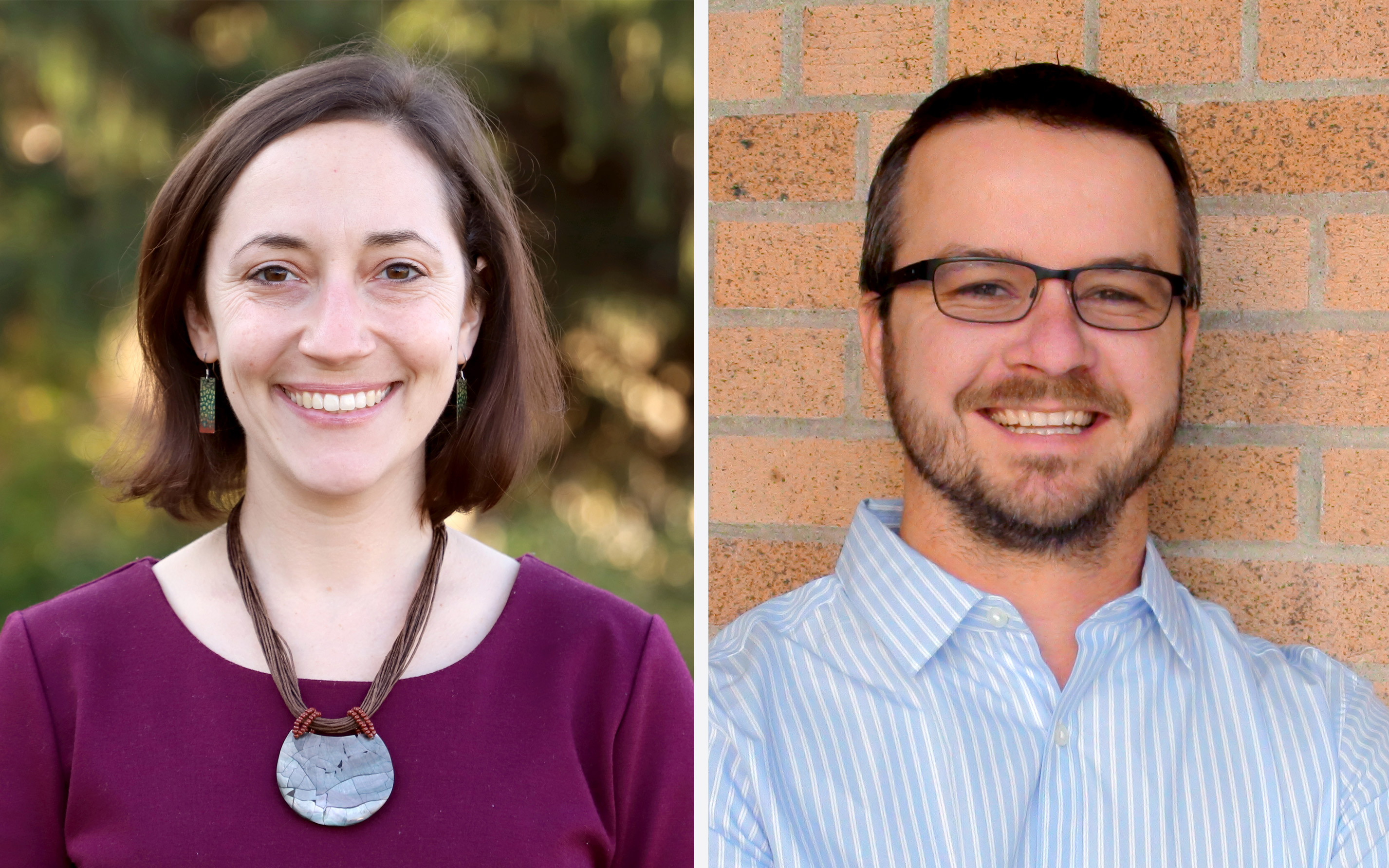
Department of Agronomy and Horticulture assistant professors Andrea Basche and Dirac Twidwell were recently included in the 2018 issue of Strategic Discussions for Nebraska. Titled “Science Literacy: Using Research-Based Facts To Make Real-World Decisions,” the publication highlights University of Nebraska–Lincoln scientists who use the best-available, data-driven technologies in their research.
Science literacy is a key initiative of the Institute of Agriculture and Natural Resources according to Michael Boehm, Vice President for Agriculture and Natural Resources at the University of Nebraska and Harlan Vice Chancellor for IANR. He also states that as the next generation of leaders is entering the educational pipeline, it’s important to have an emphasis on science, technology, engineering and mathematics (STEM) to solve the grand challenge of feeding 9 billion people by 2050.
Basche received her doctorate in crop production and sustainable agriculture. Her goal, she said, is to get students to see the bigger picture and be interested in not just the production side of agriculture, but also the environmental sustainability and the communication sides.
She wants to challenge her undergraduate students to understand the role of policy in the agriculture that helps to feed the world. Bashe said policy affects everything and science supports the policies that promote conservation of water, soil and other natural resources.
“Policy matters because all the rules govern what we do,” Basche explained. She looks for ways to better use science to support policies and programs related to agriculture, the environment and sustainability. She works with her agronomy students to be sure they can communicate their own science. “Science communication is important because people are more likely to appreciate scientific research if they see the value it has in their own lives,” Basche said.
Basche’s full interview is at https://sdn.unl.edu/article/tomorrows-scientists.
Rangeland ecologist Twidwell has studied juniper invasions across states in the Great Plains for more than a decade. Research shows that the Eastern redcedar poses one of the greatest risks to the sustainability of grasslands and is causing a broad-scale loss of grasslands in Nebraska.
Through his research, Twidwell discovered that one issue surrounding the Eastern redcedar invasion is the lack of prevention efforts and how this is tied to Nebraska’s culture of tree planting. Planting trees in grasslands is a generational and cultural identity and has been a common practice since settling began in the Great Plains.
According to Twidwell, a change in culture needs to occur in regard to these trees. “Nebraskans’ awareness of the Eastern redcedar invasion across the state must increase to move toward prevention and we must recognize that the planting of certain species in certain locations is contributing to the loss or resilience of key natural resources in the state,” he said.<
Twidwell’s full interview is at https://sdn.unl.edu/article/questioning-culture-planting-invasive-tree.
Students majoring in Agricultural and Environmental Sciences Communication interviewed the scientists and created the stories for SDN.
More details at: https://go.unl.edu/wr5h